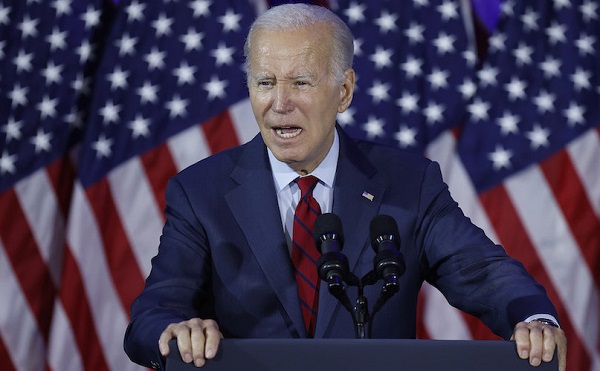Alberta
Masks to be mandatory in Alberta schools – Update on back to school plan

From the Province of Alberta
School health measures now include mandatory masks
As part of a number of new school safety measures to combat COVID-19, mask use for Grade 4 to 12 students, and all school staff, will be mandatory when school returns for the 2020-21 year.
While mandatory mask use is for students in Grades 4 to 12 and all staff, all students and staff in public, separate, Francophone, charter and independent schools will receive two reusable masks from Alberta’s government. More than 1.6 million masks will be distributed to 740,000 students and 90,000 staff. Additional single-use masks will be available at schools, if required.
Mask use will be mandatory for staff and teachers in all settings where physical distancing cannot be maintained. Students will be required to wear them in all shared and common areas such as hallways and on buses. Exemptions will be made for students and staff who are unable to wear a mask due to medical or other needs.
Mask use for kindergarten to Grade 3 students will continue to be optional. Mask use for younger children is a challenge due to difficulties with proper fit and compliance. In addition, evidence shows that children under 10 may be less likely than older children or adults to transmit COVID-19.
“The safety of our staff and students continues to be my number 1 priority. Since cancelling in-person classes in March and developing our school re-entry plan, we have been clear that we would continue to adapt our guidelines as necessary based on current medical advice. These new safety measures will help prevent the spread of COVID-19 in our schools, and we will continue to work with our school authorities to ensure they are equipped for a successful start to the school year.”
“After reviewing the emerging evidence, it is clear that masks can play an important role in limiting the spread of COVID-19. I am not making this updated recommendation lightly, but acting on the best current evidence available. While masks are important, I want to stress that they are only one of the many public health measures in place to limit the spread of COVID-19 and protect the health of students, staff and families.”
“CASS’ board of directors appreciates the government’s commitment to adapting Alberta’s health guidelines as new medical information becomes available and for ensuring school divisions are receiving the protective equipment they need for a successful transition back to school. This announcement clearly demonstrates Alberta Education’s willingness to take the necessary steps to support the safety of staff and students. We appreciate their continued collaboration and support as we approach the beginning of a new school year.”
Alberta’s government remains committed to adjusting the school re-entry guidelines based on current medical advice. The chief medical officer of health has been studying the evidence around masking in schools, and this decision is a direct result of evolving medical advice.
Face shields
School staff will receive one reusable face shield for their use in the schools. Shield use is at the discretion of the individual staff member. Plastic face shields can help reduce exposure but are not equivalent to masks. A mask must still be worn while wearing a face shield.
Hand sanitizer
About 466,000 litres of hand sanitizer will be distributed between all school authorities. The specific volume provided to an individual school authority will be based on student population.
Thermometers
Each school will receive two contactless thermometers to assist with managing student and staff health. Thermometer use will be at the discretion of the school authority.
Staff testing
Alberta Health and Alberta Health Services are working hard to expand testing capacity and reduce turnaround times for testing, including in-school staff, teachers and students, so that anyone with symptoms or close contacts of cases can be rapidly tested and receive test results promptly.
All supplies will be distributed to school authorities by the beginning of the 2020-21 school year. Authorities will then distribute to individual schools, staff and/or students based on the needs of their own communities.
Provincial health guidance for a safe return to school will continue to evolve as necessary to reflect the latest evidence on the nature of the COVID-19 pandemic.
Individual school authorities are developing return-to-school plans that meet the needs of their own communities. These plans are based on direction provided under the provincial school re-entry plan, and supporting health guidance documents.
Alberta’s Recovery Plan is a bold, ambitious long-term strategy to build, diversify, and create tens of thousands of jobs now. By building schools, roads and other core infrastructure we are benefiting our communities. By diversifying our economy and attracting investment with Canada’s most competitive tax environment, we are putting Alberta on a path for a generation of growth. Alberta came together to save lives by flattening the curve and now we must do the same to save livelihoods, grow and thrive.
Quick facts
- Alberta’s government announced students and staff would return to school under scenario 1 – near-normal daily operations with health measures – on July 21.
- School authorities are required to be prepared to move between the three scenarios outlined in the provincial school re-entry plan. Changes to scenarios will be determined by Alberta Education.
Alberta
Median workers in Alberta could receive 72% more under Alberta Pension Plan compared to Canada Pension Plan

From the Fraser Institute
By Tegan Hill and Joel Emes
Moving from the CPP to a provincial pension plan would generate savings for Albertans in the form of lower contribution rates (which could be used to increase private retirement savings while receiving the same pension benefits as the CPP under the new provincial pension), finds a new study published today by the Fraser Institute, an independent, non-partisan Canadian public policy think-tank.
“Due to Alberta’s comparatively high rates of employment, higher average incomes, and younger population, Albertans would pay a lower contribution rate through a separate provincial pension plan while receiving the same benefits as under the CPP,” said Tegan Hill, director of Alberta policy at the Fraser Institute and co-author of Illustrating the Potential of an Alberta Pension Plan.
Assuming Albertans invested the savings from moving to a provincial pension plan into a private retirement account, and assuming a contribution rate of 5.85 per cent, workers earning the median income in Alberta ($53,061 in 2025) could accrue a stream of retirement payments totalling $454,741 (pre-tax)—a 71.6 per cent increase from their stream of CPP payments ($264,968).
Put differently, under the CPP, a median worker receives a total of $264,968 in retirement income over their life. If an Alberta worker saved the difference between what they pay now into the CPP and what they would pay into a new provincial plan, the income they would receive in retirement increases. If the contribution rate for the new provincial plan was 5.85 per cent—the lower of the available estimates—the increase in retirement income would total $189,773 (or an increase of 71.6 per cent).
If the contribution rate for a new Alberta pension plan was 8.21 per cent—the higher of the available estimates—a median Alberta worker would still receive an additional $64,672 in retirement income over their life, a marked increase of 24.4 per cent compared to the CPP alone.
Put differently, assuming a contribution rate of 8.21 per cent, Albertan workers earning the median income could accrue a stream of retirement payments totaling $329,640 (pre-tax) under a provincial pension plan—a 24.4 per cent increase from their stream of CPP payments.
“While the full costs and benefits of a provincial pension plan must be considered, its clear that Albertans could benefit from higher retirement payments under a provincial pension plan, compared to the CPP,” Hill said.

Illustrating the Potential of an Alberta Pension Plan
- Due to Alberta’s comparatively high rates of employment, higher average incomes, and younger population, Albertans would pay a lower contribution rate with a separate provincial pension plan, compared with the CPP, while receiving the same benefits as under the CPP.
- Put differently, moving from the CPP to a provincial pension plan would generate savings for Albertans, which could be used to increase private retirement income. This essay assesses the potential savings for Albertans of moving to a provincial pension plan. It also estimates an Albertan’s potential increase in total retirement income, if those savings were invested in a private account.
- Depending on the contribution rate used for an Alberta pension plan (APP), ranging from 5.85 to 8.2 percent, an individual earning the CPP’s yearly maximum pensionable earnings ($71,300 in 2025), would accrue a stream of retirement payments under the total APP (APP plus private retirement savings), yielding a total retirement income of between $429,524 and $584,235. This would be 22.9 to 67.1 percent higher, respectively, than their stream of CPP payments ($349,545).
- An individual earning the median income in Alberta ($53,061 in 2025), would accrue a stream of retirement payments under the total APP (APP plus private retirement savings), yielding a total retirement income of between $329,640 and $454,741, which is between 24.4 percent to 71.6 percent higher, respectively, than their stream of CPP payments ($264,968).

Joel Emes
Alberta
Alberta ban on men in women’s sports doesn’t apply to athletes from other provinces

From LifeSiteNews
Alberta’s Fairness and Safety in Sport Act bans transgender males from women’s sports within the province but cannot regulate out-of-province transgender athletes.
Alberta’s ban on gender-confused males competing in women’s sports will not apply to out-of-province athletes.
In an interview posted July 12 by the Canadian Press, Alberta Tourism and Sport Minister Andrew Boitchenko revealed that Alberta does not have the jurisdiction to regulate out-of-province, gender-confused males from competing against female athletes.
“We don’t have authority to regulate athletes from different jurisdictions,” he said in an interview.
Ministry spokeswoman Vanessa Gomez further explained that while Alberta passed legislation to protect women within their province, outside sporting organizations are bound by federal or international guidelines.
As a result, Albertan female athletes will be spared from competing against men during provincial competition but must face male competitors during inter-provincial events.
In December, Alberta passed the Fairness and Safety in Sport Act to prevent biological men who claim to be women from competing in women’s sports. The legislation will take effect on September 1 and will apply to all school boards, universities, as well as provincial sports organizations.
The move comes after studies have repeatedly revealed what almost everyone already knew was true, namely, that males have a considerable advantage over women in athletics.
Indeed, a recent study published in Sports Medicine found that a year of “transgender” hormone drugs results in “very modest changes” in the inherent strength advantages of men.
Additionally, male athletes competing in women’s sports are known to be violent, especially toward female athletes who oppose their dominance in women’s sports.
Last August, Albertan male powerlifter “Anne” Andres was suspended for six months after a slew of death threats and harassments against his female competitors.
In February, Andres ranted about why men should be able to compete in women’s competitions, calling for “the Ontario lifter” who opposes this, apparently referring to powerlifter April Hutchinson, to “die painfully.”
Interestingly, while Andres was suspended for six months for issuing death threats, Hutchinson was suspended for two years after publicly condemning him for stealing victories from women and then mocking his female competitors on social media. Her suspension was later reduced to a year.
-

 Energy2 days ago
Energy2 days agoActivists using the courts in attempt to hijack energy policy
-

 National2 days ago
National2 days agoCanada’s immigration office admits it failed to check suspected terrorists’ background
-

 Daily Caller2 days ago
Daily Caller2 days agoWhat Happened in Butler, PA?
-

 Crime1 day ago
Crime1 day agoDEA Busts Canadian Narco Whose Chinese Supplier Promised to Ship 100 Kilos of Fentanyl Precursors per Month From Vancouver to Los Angeles
-

 Business1 day ago
Business1 day agoCanada must address its birth tourism problem
-

 Alberta2 days ago
Alberta2 days agoAlberta ban on men in women’s sports doesn’t apply to athletes from other provinces
-

 Alberta1 day ago
Alberta1 day agoMedian workers in Alberta could receive 72% more under Alberta Pension Plan compared to Canada Pension Plan
-

 International1 day ago
International1 day agoBiden autopen scandal: Did unelected aides commit fraud during his final days in office?






